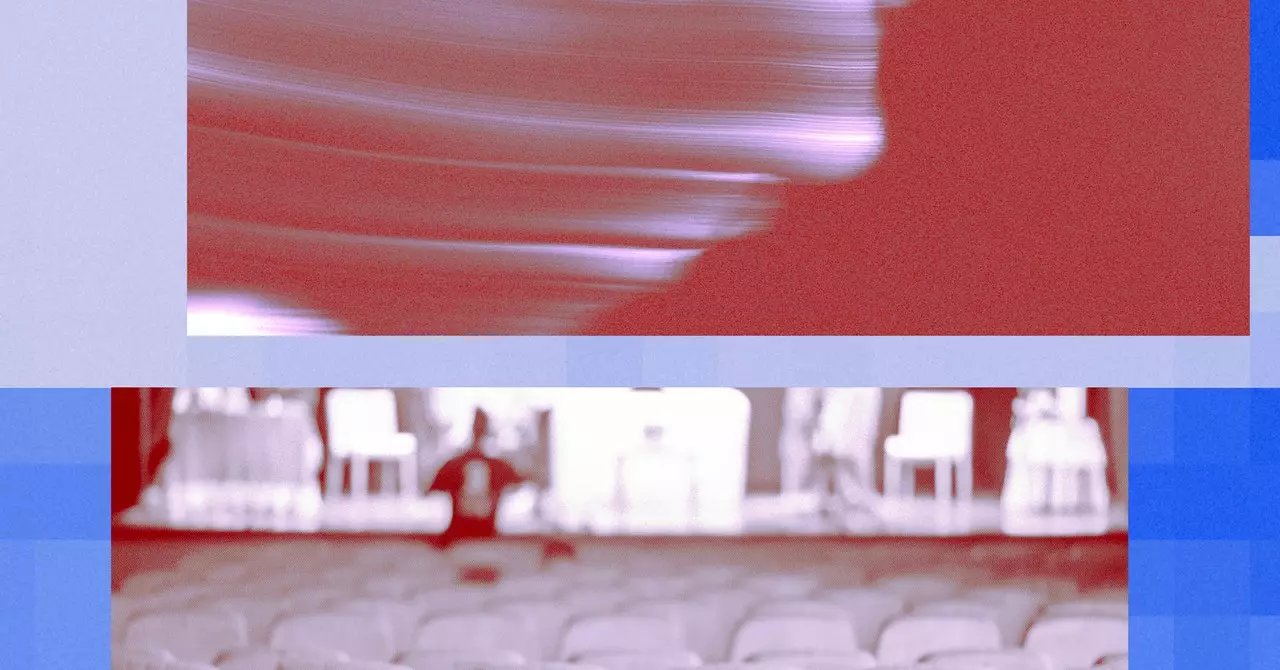The intersection of artificial intelligence (AI) and the creative arts has become a focal point of contemporary discourse, particularly in the realm of theater. With a notable surge of productions exploring these themes, playwrights are weaving intricate narratives that delve into the implications of AI on human creativity and societal structures. Two recent productions—Ayad Akhtar’s *McNeal* and Matthew Gasda’s *Doomers*—serve as compelling case studies in understanding how this burgeoning relationship between man and machine is being dramatized.
The conversation surrounding AI in theater is not a novel phenomenon; it has historical roots that date back to the early 20th century. Karel Čapek’s seminal work, *R.U.R. (Rossum’s Universal Robots)* from 1920, introduced the term “robot” to the world and presented a dystopian vision that explored the dangers of mechanization and its potential to usurp human autonomy. Čapek’s narrative woke audiences to the existential risks associated with the advancement of technology—a theme that remains profoundly relevant today.
As we watch contemporary playwrights grapple with similar anxieties, it is evident that AI’s prevalence in public discourse echoes throughout the theater world. This exploration is underscored by productions that not only serve as entertainment but also as critical commentary on the implications of smart technologies. The cyclical nature of these discussions—as seen with the echoes of Čapek’s work in today’s narratives—prompt a reexamination of the creative process in an age where algorithms increasingly mediate human expression.
Matthew Gasda’s *Doomers* cleverly captures the zeitgeist of the tech world, specifically addressing the upheaval within OpenAI’s high-profile leadership dynamics. Mirroring the real-life drama where Sam Altman was ousted only to return after widespread backlash, Gasda’s production is a two-act play that dissects not only the corporate machinations of tech start-ups but also the moral dilemmas surrounding AI’s deployment in society.
The dual-cast structure allows for a multifaceted view of the narrative, juxtaposing the experiences of those in power against those on the periphery. The conversations among characters regarding AI are dotted with cynicism and contemplation but ultimately arrive at no concrete solutions. This lack of resolution can be interpreted as a critique of the growing disconnect in elite tech spaces—where existential dialogues on AI’s ethics are often sidelined by personal insecurities and corporate ambitions.
Gasda’s intentional choice to depict his characters as indulging in escapist behavior—booze in one act and mushrooms in the next—suggests a deeper commentary on the denial of responsibility that pervades conversations about AI. In shrugging off the potential repercussions of their creations, the characters embody a societal tendency to avoid engagement with the looming questions of agency and accountability. In turn, the audience is invited to reflect on their perceptions of AI and its implications on human creativity.
In contrast, Ayad Akhtar’s *McNeal* operates on a grander theatrical scale, bringing Robert Downey Jr. into the spotlight to explore the character Jacob McNeal—a reflection of humanity’s darker inclinations. McNeal’s descent into addiction—both to substance and the seductive ease of creativity that AI provides—serves as a cautionary tale about losing one’s soul in pursuit of instant gratification. By enclosing AI within the narrative framework as a “character,” Akhtar enhances its role, echoing concerns about dependency on technology in our creative processes.
Through Akhtar’s engagement with large language models (LLMs) in his writing process, the act of creation becomes a double-edged sword. While the playwright acknowledges the enhancements AI brings to his craft, he simultaneously poses challenging questions about the nature of artistry. As viewers witness the narrative unfold with projections of AI outputs, the line between human and machine creativity blurs, prompting an existential inquiry into what it means to be a creator in an age of algorithms.
As theater increasingly grapples with the ramifications of AI, we find ourselves at a pivotal moment. Productions like *Doomers* and *McNeal* exemplify how playwrights are converging the realms of technology and human experience, forcing audiences to confront the evolving landscape of creativity. While these theatrical explorations contribute to our understanding of AI’s impact, they also ignite essential conversations about the future: one that could very well redefine the fabric of artistic expression.
In our contemporary world, where the rapid evolution of AI technologies shapes daily life, the theater stands as a pertinent mirror reflecting society’s most pressing fears and questions. Whether these narratives will inspire responsible engagement with technology or remain cautionary tales remains to be seen—yet they undeniably provoke thought, urging audiences to consider the profound interplay between man, machine, and creativity.


Leave a Reply